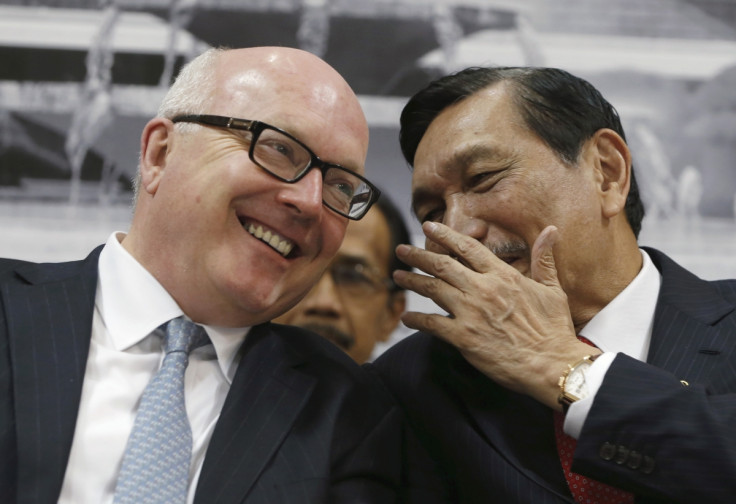Isis seeks to set up caliphate in Indonesia warns Australian Attorney General George Brandis

The Australian Attorney-General George Brandis has warned that the Islamic State has set its eyes on turning Indonesia into a 'distant caliphate' as part of its ambitions to move beyond the Middle East region. It plans to do this "either directly or through surrogates," he said.
Speaking to an Australian newspaper during high level security meetings in Jakarta between Indonesia and Australian ministers and security officials, he said: "Isis has ambitions to elevate its presence and level of activity in Indonesia, either directly or through surrogates."
He continued: "You've heard the expression the 'distant caliphate'? Isis has a declared intention to establish caliphates beyond the Middle East, provincial caliphates in effect. It has identified Indonesia as a location of its ambitions."
Brandis goes on to say that both Australia and Indonesia were "very vulnerable" to terrorism, especially the "Isis-inspired terrorism." Australian Justice Minister Michael Keenan said sharing intelligence and policing resources were ways both countries could work together to "counter the virulent and violent message that is put out by Isis in the Middle East, particularly over social media."
Both countries have signed a memorandum of understanding on terrorism following a separate meeting between the defence and foreign ministries in Sydney. Cyber-security has been identified as a future area of co-operation.
Greg Fealey, an expert in Islamism and Indonesian politics from the Australian National University however thinks otherwise. He said Isis is not the major Islamist risk in Indonesia, despite the fact that around 300 Indonesians have gone to the Middle East as foreign fighters.
"I'm a bit sceptical. Most scholars looking at Isis in South-east Asia and particularly in Indonesia are not convinced that Isis has big plans for Indonesia," he said.
"We've not seen Isis sending fighters back to Indonesia or Malaysia to undertake terrorist operations ... Nor has there been a statement from IS [another name for Isis or Daesh] centrally, indicating they would seek to establish a caliphate in south-east Asia or Indonesia," Fealey added.
He said that foreign fighters who returned home are not interested in terrorism but in using skills acquired to build an Islamic state. Fealey did acknowledge though that a small number of foreign fighters who returned to Indonesia had fought with al-Qaeda affiliate Jabhat al-Nusra.
© Copyright IBTimes 2025. All rights reserved.






















